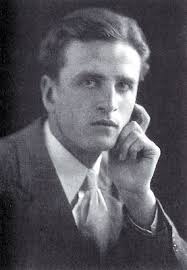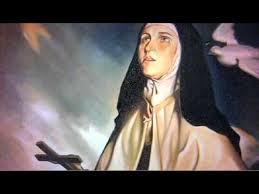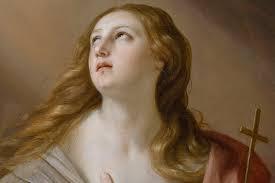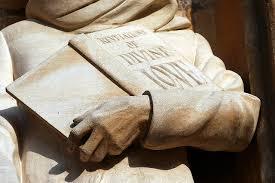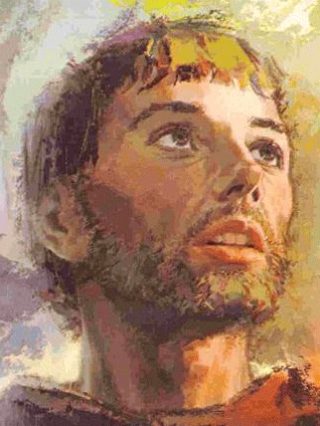Who Do You Say That I Am?
Christian Mystic Cynthia Bourgeault Responds

Cynthia Bourgeault is a modern day mystic, Episcopal priest, writer, and internationally known retreat leader. She has been a long-time advocate of the meditative practice of Centering Prayer, which we mentioned in a previous article. Her book The Wisdom Jesus tries to move beyond the conventional understanding of Jesus and his message handed down through the generations in churches and schools. She suggests that what gets in the way of our fully appreciating the gospel message is a sort of over-familiarity with the Christian story. We sit in church over many years hearing the stories of the Woman at the Well, the Wedding Feast at Cana and parables like the Good Samaritan or The Prodigal Son. But do we get what Jesus is really saying beyond a vague injunction to “Be nice”?
Jesus was not from Kiltimagh!
Bourgeault also claims that preachers have tended to sentimentalise the idea that Jesus was an uneducated carpenter from an obscure town called Galilee. In her book, under the heading “Jesus was not a Hick” she explains that the town of Galilee lay on the Silk Road that connected the Mediterranean with the lands and culture of Central Asia and China. She proposes that his teachings show a clear overlap with those of other spiritual traditions including Buddhism and Persian mysticism. She also points out that he could read, quoting Luke 4:16 where we see him walking confidently into the synagogue in his first public appearance and reading from the scrolls of the prophet Isaiah and announcing, “Today this scripture has been fulfilled”.
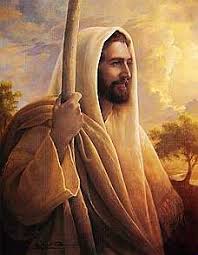
Bourgeault reckons that Jesus probably spoke several languages. We know he spoke Aramaic and Hebrew and given his interaction with Pontius Pilate he may well have understood Latin and most probably Greek too. She also believes he went through a very specific religious training influenced by the teachings of the Essenes, a Jewish community that emphasised repentance and purification, as most likely did his cousin John the Baptist. But his teachings were not simply limited to any training he might have had but have all the hallmarks of a divinely inspired awareness.
Knowing Jesus or Knowing About Jesus?
According to Bourgeault, over the centuries we have become overly focussed on knowing about Jesus and less engaged with ‘putting on the mind of Christ’ as exhorted by St Paul in Philippians 2:5. This latter process according to Bourgeault, involves ‘not just admiring Jesus, but acquiring his consciousness’. (p. 29, The Wisdom Jesus). Knowing about Jesus usually gets interpreted as having the correct beliefs, hence the emphasis on dogma in much church teaching. But Bourgeault goes on to ask us, how do we put on the mind of Christ anyway? ‘How do we see through his eyes? How do we feel through his heart?’ (p. 29 The Wisdom Jesus) She argues that being a Christian is not so much about ‘right belief’ but more about ‘right practice’.
The Kingdom of Heaven: Not to Be confused with the County of Kerry or Grafton Street on a Sunny Day!

She finds a possible key to this question through another writer Jim Marion, who in his book Putting on the Mind of Christ asks what Jesus really means by the phrase “the Kingdom of Heaven”. Jesus refers to this phrase throughout the gospels likening the Kingdom of Heaven to various things or situations. Bourgeault says that there are three possibilities here:
- The Kingdom of Heaven is a place you go to when you die – if you’ve been good.
- The Kingdom of Heaven is a kind of earthly utopia where everyone lives in harmony and there is a fair distribution of economic assets.
- The Kingdom of Heaven is a metaphor for a state of consciousness, a whole new way of looking at the world.
The first option a) is specifically rejected by Jesus himself when he uses phrases in the gospels like “The Kingdom of Heaven is within you” or “The Kingdom of Heaven is at hand” strongly suggesting that it is not somewhere you go to or some place in the future.
Option b) is also rejected by Jesus who shrank from the idea of being a Messiah that would inaugurate the reign of God’s justice. This is clear when he states in John 18:36: ‘ My kingdom is not of this world.”
A New Type of Consciousness
Bougeault argues that Option c) is the interpretation most aligned to the teachings of Jesus. The Kingdom of Heaven as a state of consciousness is a kind of unitive mind that sees no separation between God and humans or between humans themselves and each other. Jesus gives us a flavour of what that might mean when he says in John 15: “I am the vine; you are the branches. Abide in me as I in you.” In a future article using Bourgeault as our guide, I hope to make use of this type of non-dual consciousness to look at the gospel stories with fresh eyes.

